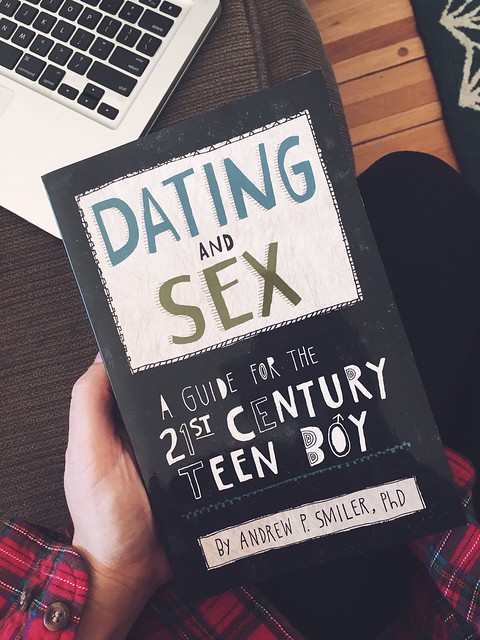Andrew Smiler, PhD, is a licensed therapist and an expert on boys, men, and masculinity. Dr. Smiler holds a Masters in Clinical Psychology and a PhD in Developmental Psychology. He authored “Challenging Casanova: Beyond the stereotype of the promiscuous young male” and co-authored “The Masculine Self,” with renowned researcher Chris Kilmartin. Dr. Smiler has been featured in the New York Times, written for the Huffington Post, Shriver Report, and Everyday Feminism, and is a regular contributor to the Good Men Project.
Rebecca Woolf: Hey, Andrew! Thanks for joining me (and us) today to chat a little about your new book, Dating and Sex: A Guide for the 20th Century Teen Boy. First off, can you tell us a little bit about the book? What led you to write it? And what age group is this book directed to specifically?
Andrew Smiler: Thanks. It’s a pleasure to be here. Dating and Sex is written for 13-16 year old boys whether they’re just starting to think about dating and sex or whether they’ve been doing these things for some time. It’s written as a “how-to,” so there’s lots of discussion of how to think about the different components of dating and sex as well as advice on how to actually do those things.
Andrew Smiler: Thanks. It’s a pleasure to be here. Dating and Sex is written for 13-16 year old boys whether they’re just starting to think about dating and sex or whether they’ve been doing these things for some time. It’s written as a “how-to,” so there’s lots of discussion of how to think about the different components of dating and sex as well as advice on how to actually do those things.
Woolf: Because our readers' kids typically skew younger, what advice would you give parents of boys who have questions about sex and sexuality at an early age? Is there a "time" when parents should think about having "the sex talk" with their children, specifically sons?
Smiler: I think parents and kids do better when they think about dating and sex as a topic to be discussed repeatedly over the years, not just one awkward conversation where no one makes eye contact. After all, we wouldn’t have a single conversation with our boys about what it means to be a good person, how to manage their money, or how to choose a college, so why is that tolerated when it comes to dating and sex? Having conversations across the years will help build a foundation that fits your and your sons’ values, creates comfort talking about these topics, and develops trust in parents’ ability to address these topics as well as trust in the quality of the answers.
When 6 to 10 year olds see people holding hands or kissing, on screen or in real life, ask them if they can imagine doing those things some day and talk to them about why people do those things; these questions will also be relevant if kids report attractions and crushes around age 6 or age 10. Ask similar questions about dating or being a couple or getting married. Once your kids become teens, you can shift the question to more sexually intimate behaviors.
Woolf: How important is it for the men in our sons' lives to have these kinds of conversations as opposed to the women? For example, I'm definitely the "sex talk parent" in my house but I wonder if a male POV is more important than a female one when it comes to talking to boys about sexuality? Thoughts?
Smiler: Most boys say they want to have conversations about dating and sexual behavior with someone they trust to provide honest and accurate answers and who will respect the boys’ own answers; the trusting relationship is more important than the gender identity of that person. At the same time, it is important to recognize that there is a subset of boys who explicitly prefer having this conversation with a male. Ask your son which/who he prefers, and also pay attention to see who he’s addressing his questions to...
You can read the rest of my interview with Andrew Smiler, here. You can also check out Andrew's new book DATING AND SEX: A Guide for the 21st Century Teen Boy, here.
You can read the rest of my interview with Andrew Smiler, here. You can also check out Andrew's new book DATING AND SEX: A Guide for the 21st Century Teen Boy, here.



0 comments:
Post a Comment